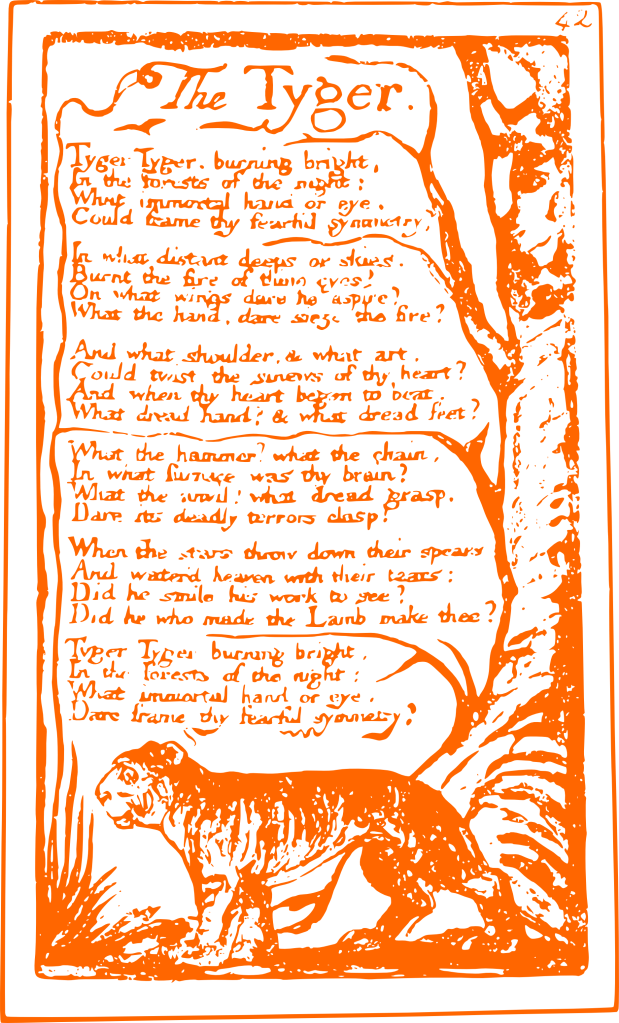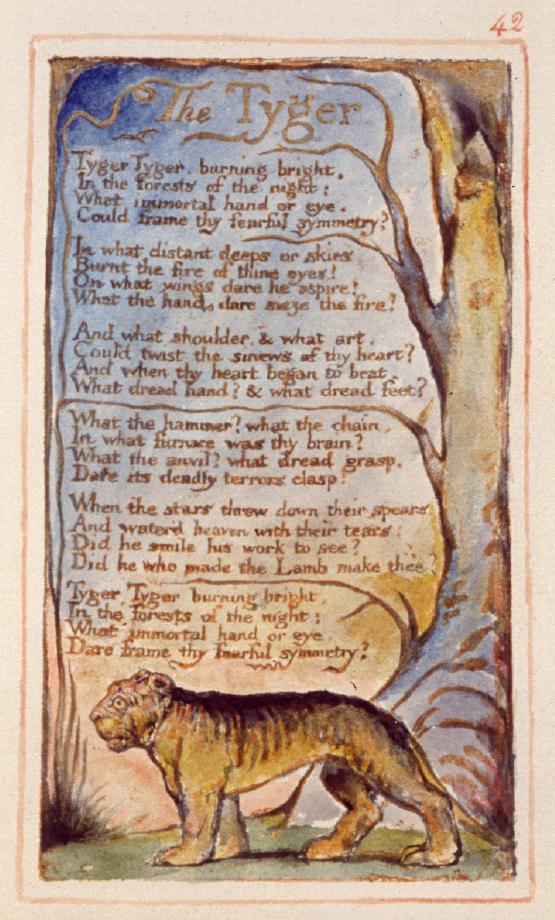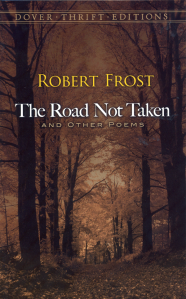Recently while reading about the last great Mughal, Aurangazeb, I came to know about a letter called Zafarnama written by Sikh Guru Gobind Singh. Zafarnama literally means letter of victory. The letter was written by the Guru when he escaped a treacherous attack by Mughals in Chamkaur. Earlier oath on Quran had been taken to allow a safe passage to the Guru. There were 40 Sikhs in all who defended a garhi in Chamkaur on 22nd December 1704, amongst them sons of Guru Gobind Singh also gave their lives.
The letter is in verse form, written in persian. The letter has 111 verses dedicated to different things. It is said that the letter caused great remorse to Aurangazeb and hastened his death.
Maybe the all the fundamentalists should also read this letter and understand, what Aurangazeb understood at the end of his life.
More about Zafarnama
here and
here. The translation below is from
here.
Zafarnama by Guru Gobind Singh
O Master of miracles, O Eternal and Beneficent One,
O The Provider of our sustenance, O our Deliverer, Bestower of Grace and Mercy! (1)
O Giver of Bliss, O Great Pardoner, Who holds me by the Hand,
O Remitter of sins, O Bestower of daily bread, O Charmer of our hearts! (2)
O King of kings, O Giver of Good, O guidance of the Way.
O One without colour, without form, without equal! (3)
He who has no material possessions, no army, no ground to stand upon,
Him too, Thou blessest with Heavenly Bliss. (4)
Separate from the world, yet most powerful, the Presence, Who givest Thy gifts as if Thou wert here before us. (5)
O Thou Pure One, Our Cherisher, our only Giver.
O Thou Merciful One, who givest to every land! (6)
O Greatest of the great, Thou art the God of every land:
Of Perfect Beauty, Merciful and Giver of sustenance! (7)
O Master of intellect, O Embellisher of the meek,
O Refuge of the poor, O Destroyer of the tyrant! (8)
O Protector of the faith, Fountain of eloquence,
O Knower of the Real, O Author of revelation! (9)
O Master of intelligence, O Appreciator of Wisdom,
O Diviner of secrets, O Omnipresent God! (10)
Thou knowest all that happens in the world,
And Thou resolvest all its problems and doubts. (11)
O Thou all-knowing God, O Great One,
Thou alone art the organiser of our lives. (12)
The Memorandum to Aurangzeb
I have no faith in thy oaths,
Even if thou bringest in God as thy witness. (13)
I haven’t even an iota of trust in thee,
For, all thy ministers and thy courtiers are liars. (14)
He who puts faith in thy oath on the Koran,
He in the end, comes to ruin. (15)
But, beware that the insolent crow
Can lay not its hands upon one whose protection is Huma, the Bird of Heaven. (16)
He who seeks the refuge of the tiger
Can he be harmed by a goat, a deer or a buffalo? (17)
Had I vowed even secretly on the book of my faith,
I would have withdrawn infantry and cavalry from the field. (18)
And, what could my forty men do (at Chamkaur), when a hundred thousand men, unawares, pounced upon them? (19)
The oath breakers attacked them, of a sudden, with swords, arrows and guns. (20)
I had, perforce to join battle with thy hosts,
And I too fought with the muskets and arrows as best as I could. (21)
When an affair is past every other remedy,
It is righteous, indeed to unsheath the sword. (22)
Hadn’t I taken thee to thy word upon the Koran,
I wouldn’t have chosen the path I did. (23)
I knew not that thy men were crafty and deceitful like a fox.
Else I wouldn’t have driven myself to this state. (24)
He who swears to me on the Koran
Ought not to have killed or imprisoned my men. (25)
Thy army dressed like blue bottles,
Charged us, of a sudden, with a loud bang. (26)
But, he who advanced from thy ranks beyond his defences,
Was hit with such deadly aim of my single arrow that he was deluged in blood. (27)
But they who aggressed not against us
Were left unhurt, unmolested by us. (28)
When I witnessed thy general, Nahar Khan, advancing for war,
I gave him the taste of a single deadly arrow. (29)
And many of his men who boasted of their valour,
Fled the battlefield, in utter shame. (30)
Then advanced another one of Afghan blood,
Rushing forth like flood, like a gun-ball, or a deadly arrow. (31)
He made many assaults with great courage,
Some with conscious skill, and others like mad. (32)
The more he attacked, the more he was mauled,
And then while killing two of my ranks,
He, too, fell dead in the cold dust. (33)
But the cowardly and contemptible Khawaja came not forth like a man,
And hid himself behind a wall. (34)
Had I but seen his face,
I couldn’t but have helped him too with an arrow. (35)
At last, many on their side fell on the ground
Hit by the arrows and the death dealing bullets. (36)
There was, indeed, an overpowering rain of these,
And the earth turned red like the lalla flower. (37)
Torn heads and legs lay in heaps,
As if the earth was covered with balls and sticks. (38)
The arrows whizzed, the bows twanged,
And, it brought forth from the earth only cries and yells. (39)
There were other dreadful, vengeful noises too, of weapons and men,
When men, bravest of the brave, battled like mad. (40)
But, what kind of chivalry is this in war,
That countless hosts should pounce upon a mere forty of us, (41)
When the lamp of the world veiled itself,
And the queen of night came forth with all her splendour. (42)
He who trusts, however, in an oath on God,
His Protection also in He; in need, He shows the Path. (43)
So, not even a hair of mine was touched, nor my body suffered,
For the God, the Destroyer of my enemies, Himself pulled me out to safety. (44)
I knew not that you, O man, were a perjurer,
And a worshipper of self, and a breaker of faith. (45)
Nay, you keep no faith, nor mind religion,
Nor know God, nor believe in Mohammed. (46)
He who observes the tenents of his faith,
He makes a promise but never to break it. (47)
You have no idea of what an oath on the Koran is:
Nay, you have no faith in the One God.
(48)
Now if you were to swear a hundred times on the Koran,
I’d regard not thy word, not an iota of it. (49)
Had you ever a mind to keep thy faith,
You would have taken courage and come to me. (50)
From when you gave your word,
Swearing in the name of God’s Word, it was incumbent on you to keep your faith. (51)
If your majesty were to be present here before me,
I would have with all my heart posted you with your treachery. (52)
Do now what is enjoined upon you,
And stick to your written and plighted word. (53)
The written word and the verbal promise of your envoy,
Both, should have been fulfilled by you. (54)
He alone is a man who keeps his word:
Not that he has one thing in the heart, and another on the tongue. (55)
Your promise was to honour the Qazi’s word,
If that be true, then come thou to me. (56)
If you want to seal thy promise on the Koran,
I would send the document for sure to thee. (57)
If only you were gracious enough to come to the village of Kangar,
We could then see each other face to face. (58)
On the way, there will be no danger to your life,
For, the whole tribe of Brars accepts my command. (59)
Come to me that we may converse with each other,
And I may utter some kind words to thee. (60)
I’d send thee a horseman like one in a thousand,
Who will conduct thee safe to my home. (61)
I’m a slave of the King of kings,
And ready to obey His Call with all my heart. (62)
If He were to order me thus,
I’d with utmost pleasure present myself to thee. (63)
And if you are a believer in One God,
Tarry not in what I ask you to do. (64)
It is incumbent upon you to recognise the God,
For He told you not to create strife in the world. (65)
You occupy the throne, in the name of God, the Sovereign of all creation,
But strange is thy justice, stranger thy attributes! (66)
What sense of discrimination is this? What regard for religion?
O fie on such a sovereignty! Fie a hundred times!! (67)
Stranger than strange are thy decrees, O king,
But beware that broken pledges boomerang on those who make them. (68)
Shed not recklessly the blood of another with thy sword,
Lest the Sword on High falls upon thy neck. (69)
O man, beware and fear thy God,
For, though flattery or cajolery He can be deceived not. (70)
He, the King of kings, fears no one,
And is the True Sovereign of the earth and heaven. (71)
God is the Master of the earth and the sky:
He is the Creator of all men, all places. (72)
He it is who Creates all – from the feeble ant to the powerful elephant,
And is the Embellisher of the meek and Destroyer of the reckless. (73)
His name is: “Protector of the meek”.
And Himself He is dependent upon no ones support or obligation. (74)
He has no twist in Him, nor doubt.
And, He shows man the Way to Redemption and Release. (75)
You are bound, indeed by your word on the Koran,
Let, therefore, the matter come to a good end, as is your promise. (76)
It is but meeting that you act wisely,
And be discreet in all that you do. (77)
What, if you have killed my four tender sons,
When I, like a coiled snake remain behind. (78)
It is not brave to put out a few sparks,
And stir up a fire to rage all the more! (79)
What a beautiful thought has Firdausi, the sweet-tongued poet, expressed:
“He who acts in haste, plays the devil”. (80)
When you and I will, both repair to the Court of God,
You will bear witness to what you did unto me. (81)
But, if you will forget even this,
Then, God on High will also forget you from His Mind. (82)
God will reward you well for your misdeed,
Which you launched with all your recklessness! (83)
This is the keeping of faith: this the act of goodness,
To put God above the love of life. (84)
I believe not that you know God,
Since, from you have come only tyrannous acts. (85)
The Beneficent God also will know thee not,
And will welcome not thee with all thy riches. (86)
If now you swear a hundred times on the Koran,
I will not trust you even for a moment. (87)
I will enter not your presence, nor travel on the same road,
Even if you so ordain, I would oblige you not. (88)
O Aurangzeb, king of kings, fortunate are you,
An expert swordsman and a horseman too: (89)
Handsome is your person and your intellect high,
Master of the lands, ruler and emperor. (90)
A skilled wielder of the sword and clever in administration,
A master-warrior and a man of charitable disposition. (91)
You grant riches and lands in charity,
O one of handsome body and brilliant mind. (92)
Great is your munificence, in war you are like a mountain,
Of angelic disposition, your splendor is like that of Pleiades. (93)
You are the king of kings, ornament of the throne of the world:
Master of the world, but far from religion! (94)
I warred with the idol-worshipping hill chiefs,
For, I am the breaker of idols and they their worshippers. (95)
Beware, the world keeps not faith with any:
He who rises also falls and comes to grief. (96)
And look also at the miracle that is God,
That He may destroy a whole host through a single man! (97)
What can an enemy do to him whose friend is God?
For the function of the Great Bestower is: To Bestow. (98)
He grants Deliverance and shows also the Way.
And He teaches the tongue to utter His praises, in love. (99)
In the time of need, He blinds the enemy,
And protects the helpless from all injury and harm. (100)
And he who acts in good faith,
On him, the Merciful One, rains His Mercy. (101)
He who serves Him with all his heart,
God blesses him with the Peace of Soul. (102)
What harm can an enemy do to him,
On whom is the Please of God, our Supreme Guide. (103)
The Creator-Lord is ever his refuge, even if tens of thousands of hosts were to proceed against him. (104)
If you have the pride of your army and riches,
I bank upon the Praise of God, the Almighty. (105)
You are proud of your empire and material possessions, while I am proud of the Refuge of God, the Immortal. (106)
Be not heedless: for the world lasts but a few days,
And man may leave it, one knows not when. (107)
Look at
the ever changing faithless world:
And see what happens to every house, every denizon. (108)
If you are strong, torture not the weak,
And thus lay not the axe to thy empire. (109)
If the One God is one’s Friend, what harm can the enemy do,
Even if he multiplies himself a hundred times? (110)
A thousand times let an enemy assault him,
And yet touch not even a hair on his head. (111)





